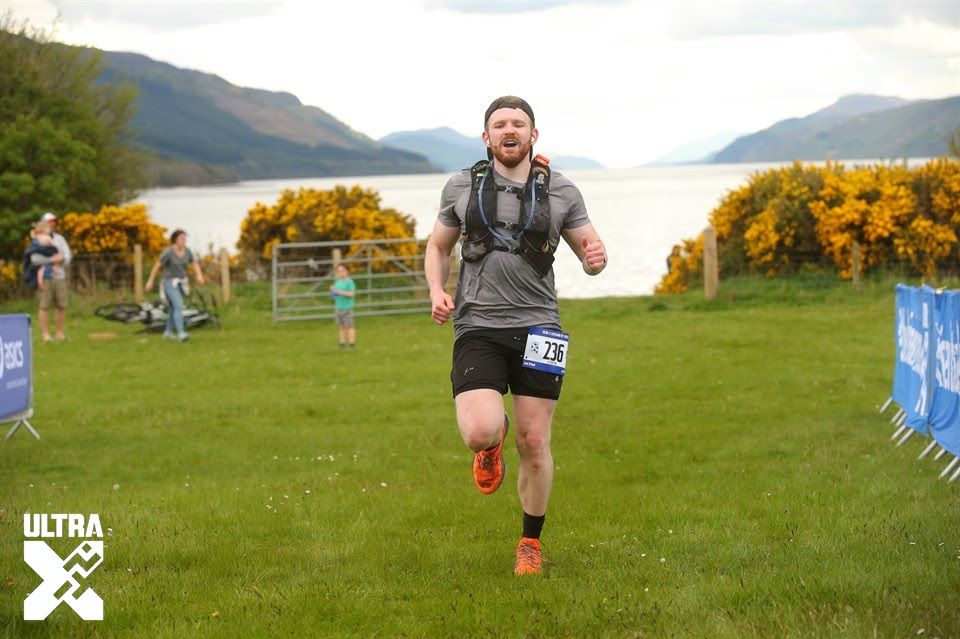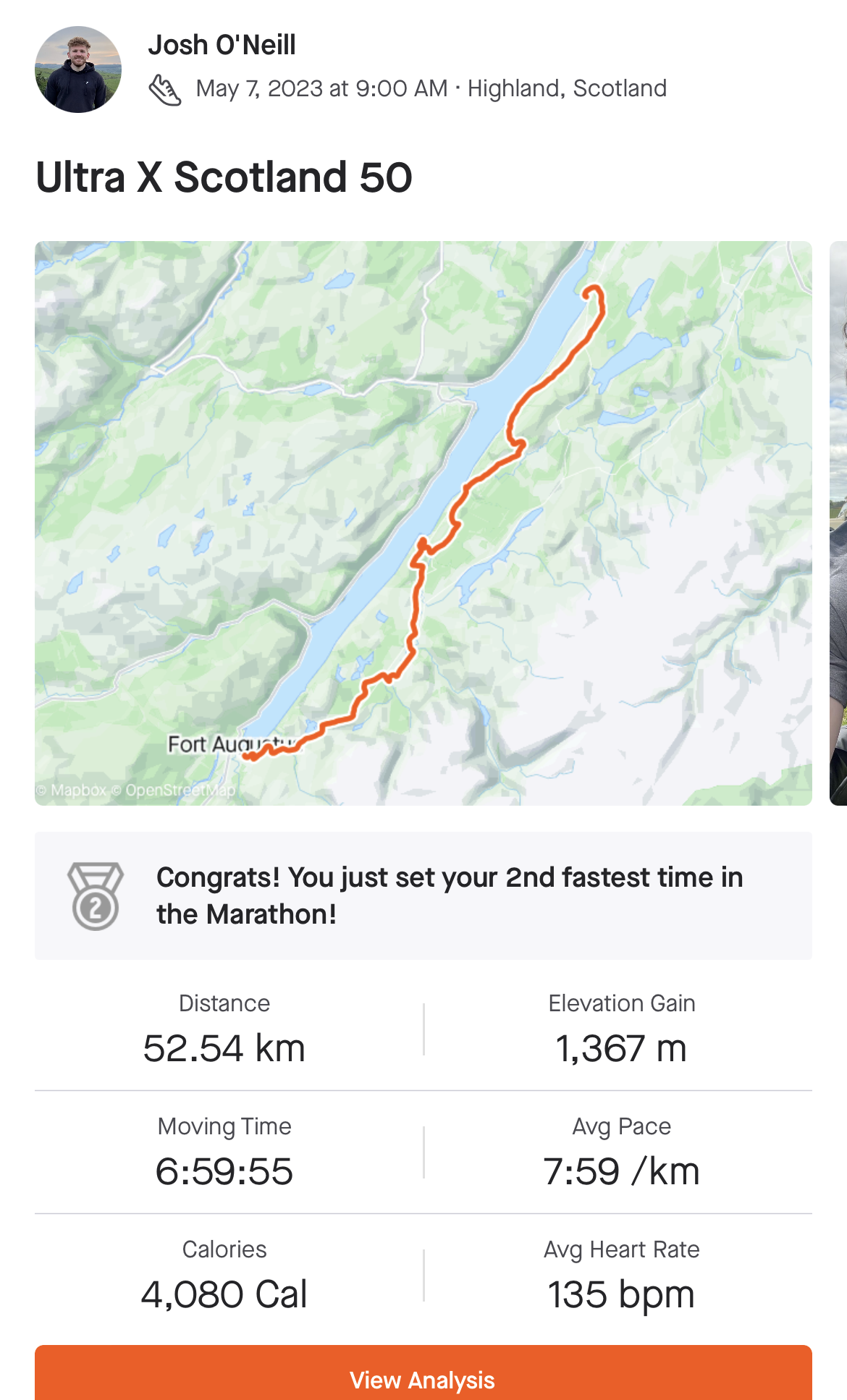Deadlifts and Distance Running - My First Ultra Marathon

5th December 2021 - I completed my longest run ever. It was 45 minutes long and I did 8.5km.
It was a cold, crisp morning and I was buzzing with myself. I had my first ever 10km event 5 weeks later so this run was a massive confidence booster. Even the thought of doing 10 km scared me.
That morning holds a lot of significance to this day. I remember being so pumped yet so gassed at the same time. Those 45 minutes felt like 45 hours.
It was the first time I had challenged a long-standing belief - I'm not a runner. The truth was I just wasn't conditioned or very good at it.
If on that morning, you told me 18 months later I would complete a 50km ultramarathon with over 1300m elevation I would've scoffed at the thought of it.
But that's exactly what happened.
This Is Your Most Important Gift
Going into the training for this event, I had a better idea of what I was going to be up against in terms of the distances I would have to go and the way my body would react and recover.
I could implement all the lessons I learned from completing Edinburgh and pour them into this.
I also knew how important it would be to fuel properly for the big runs and eat back calories afterwards. Planning what I would have and making sure I had plenty of food left nothing to chance.
I became borderline obsessive with it and with good reason - I wanted to show up on the start line knowing I had done everything I could in preparation. This is what peak mental and physical performance is like.
All of this boils down to your mindset.
How much do you want it?
Are you willing to go all in and show off your best self or pick and choose the parts you like? If you go for the latter, it's a half-baked attempt and you'll be left wondering about what could've been if you had done it differently.
I knew when I started running on the banks of Loch Ness I had done the most I could and given it my all to be there.
The Race
It was a glorious morning with the sun out. There was some cloud cover as well so weren't completely exposed.
Starting off we were straight into an undulating climb. I didn't go too hard so I could save it for later on. The terrain was very dry since it hadn't rained in a while which meant great running conditions.
I reached the first checkpoint aid station in good time and admired some of the stunning views of the hills as I climbed upwards. 7km in and the elevation was at 300m.
The next checkpoint was at 17km and it was majority downhill to it which meant good time could be made up.
I had one issue though. Despite going at a perceived zone 2 effort, my heart was up at 185 bpm! I had to slow down and bring my heart rate back to a reasonable level. I think this was due to a cold I had picked up in the week prior to the race. My first challenge of the day.
After the second checkpoint, I hit the half-marathon mark feeling a lot better and with a much lower heart rate too! I controlled my breathing and continued moving. There was then a big climb which really messed with my head. I also noticed a strange tightness in my thigh.
I kept pushing and hit the halfway mark, then the 30km mark. And this was where the second big challenge happened. My left quad started cramping. I was confused as I'd never gotten cramps there before. I chewed an electrolyte tablet and kept moving because I knew the next checkpoint was at 32 km.
I got a pleasant surprise there which lightened my mood. Aimee had come to meet me there after being unable to get me at the previous one. I had to sit down and compose myself for 5 minutes. I drank about a litre of water with electrolytes, ate some flapjacks and got ready to go again.
A Hard Lesson
The cramp kept coming back. To ease it off I would take an electrolyte tablet and walk. Once my leg felt good, I would run and let the pain build up to the point where I was struggling to run, chew another salt tablet, walk and then run again.
The cycle repeated itself over and over. My mind was in a constant chorus of "just walk it in", "what the f*ck is going on" and "keeping f*cking running" on repeat. I definitely grunted out a few times in frustration.
It became an exercise in pain management.
Looking down at my watch and seeing the distance counter cross from 42.2 to 42.3 km felt special. I had reached the ultramarathon distance. I was in uncharted territory now.
I was deep in the pain cave.
Thoughts of crossing the finish at Dores Beach and jumping into Loch Ness kept me going. I only had to keep putting one foot in front of the other.
When I ran down the hill into Dores, I was giving everything I had left in me. I was determined to cross the line having given everything I had out there.
My time was 6 hours and 59 minutes.

My Biggest Lessons
- Training with salt tablets - It got warm pretty quickly unlike when I was training so I started sweating way quicker than I expected.
- Leave as little to chance - plan where you're staying pre and post-race if you need to travel, also where you plan to take breaks for refuelling/refilling and account for these in your planning for the race and strategy.
- Respect the land and weather - running on trail is hard anyway but even more so when you're going up 1300m of elevation. The weather could turn quickly so you have to respect what's in front of you.
- Pain is inevitable - it's an ultramarathon so you're going to hurt at points throughout the race. Battling with the inner voice and your desire to get to the finish becomes key.
- Embrace the suck - similar to the last point, you're going to have to bathe in the pain cave for a period.
What's Next?
The inevitable question.
Getting asked if would I do it again.
Right now, I don't know.
What I can say is my first ultra endurance experience was humbling and taught me a lot about the grit and resilience people have when there are dealing with an insane amount of stress.
I still don't think the magnitude of the event has hit me yet too.
I'm enjoying not having an overarching goal right now.
My mind and body both need time to fully recover.